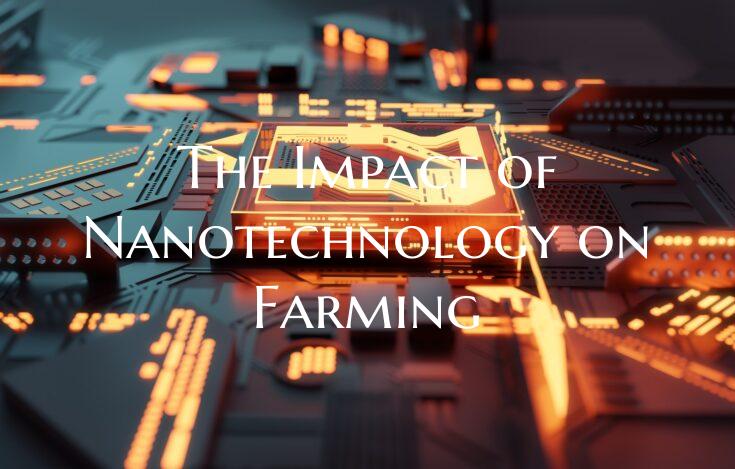The Impact of Nanotechnology on Farming
Nanotechnology, the manipulation of matter at an atomic and molecular scale, has begun to revolutionize various industries, and agriculture is no exception. Through the application of nanotechnology in farming, significant advancements are being made that enhance agricultural efficiency, productivity, and sustainability. This technology offers a range of novel solutions to address the challenges facing modern agriculture, from increasing crop yields to reducing environmental impacts. Let's explore the profound impact of nanotechnology on farming:
1. Improved Crop Nutrition and Protection: Nanotechnology enables the development of nano-fertilizers and nano-pesticides that can enhance nutrient uptake by plants and improve pest and disease control. These nano-formulations help in delivering nutrients and active ingredients more effectively to crops, leading to better growth and higher yields.
2. Precision Farming: Nanosensors and nanoprobes are being used to monitor soil conditions, crop health, and environmental factors with high precision. This data-driven approach allows farmers to make informed decisions on irrigation, fertilization, and pest management, resulting in optimized resource utilization and minimized environmental impact.
3. Enhanced Seed Quality and Plant Breeding: Nanotechnology is being applied to improve seed coating technologies, enabling better germination rates and seedling growth. Additionally, nanomaterials are used in genetic engineering and gene editing techniques to develop stress-tolerant and high-yielding crop varieties.
4. Water Management: Nanotechnology plays a crucial role in water purification and desalination processes, providing sustainable solutions for water-scarce regions. Nanomaterials such as carbon nanotubes are used in filtration systems to remove contaminants and improve water quality for irrigation purposes.
5. Soil Remediation and Waste Management: Nanoremediation techniques are employed to clean up soil contaminated with heavy metals and pollutants, restoring arable land for agricultural use. Nanomaterials also facilitate the decomposition of organic waste and the recycling of agricultural by-products into valuable resources.
6. Smart Delivery Systems: Nanocarriers are utilized to deliver agrochemicals and nutrients directly to targeted plant tissues, reducing wastage and increasing efficiency. This precise delivery mechanism ensures minimal environmental impact and maximum benefit to crops.
7. Environmental Sustainability: By promoting precision agriculture practices and reducing the use of conventional agrochemicals, nanotechnology contributes to sustainable farming systems that protect ecosystems, conserve natural resources, and mitigate climate change effects.
In conclusion, the integration of nanotechnology into farming practices offers immense potential to transform agriculture into a more productive, sustainable, and environmentally friendly industry. As researchers and practitioners continue to explore and innovate in this field, the impact of nanotechnology on farming is set to revolutionize food production and address the global challenges of feeding a growing population in a resource-constrained world.

